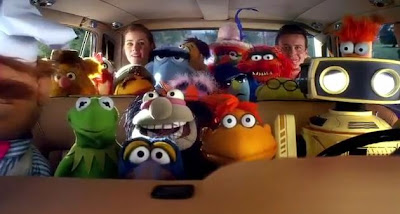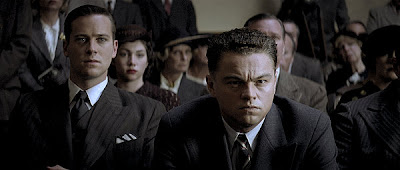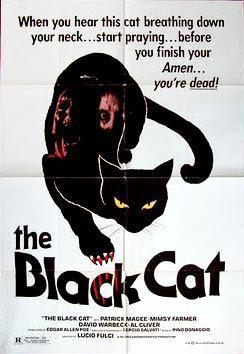I've pretty much exhausted what 2011 has to offer and with a viewing of Steven Spielberg's "War Horse" some time this weekend, that will make it 113 films seen this year - some bad, some good, but as we all know, mostly bad.
However, out of those mostly bad films I sat through this year, these ten were surely the worst. So before I get to the good stuff (Top 10 list coming later this weekend), here are the ten turds of 2011:
-
#10-
-
"IN TIME"Directed by Andrew Niccol
-
Aside from its impeccable timeliness (no pun intended, I assure you), Andrew Niccol's "In Time", a sci-fi Occupy Wall Street allegory in which money is currency and two outlaws rob from greedy corporations who fund their immortality and give to the poor who literally live second-to-second, was one haphazard treatment of an admittedly promising conceit.
-
The production design is stale, the performances are stiff and pretty soon the film devolves into a bunch of clean-cut 25 year-olds running and staring at their wrists.
-
#9
-
-
"COLOMBIANA"Directed by Olivier Megaton
-
Revenge thrillers would appear to be an easy commodity to produce reasonably well, especially when you're Luc Besson ("Leon", "La Femme Nikita") but "Colombiana", the writer/director/producer's latest thriller with a slinky, female assassin, doesn't even produce guilty thrills, it's too sullen for that.
-
#8
-
-
"JUST GO WITH IT"Directed by Dennis Dugan
-
Not sure if Brooklyn Decker could look any better, but her film debut in this misguided romantic triangle couldn't have been in service of a more toxic affair. The fact that Sandler expects us to buy that his character would send both she and Jennifer Aniston into a fit of jealous hijinks is perhaps the best joke in the film.
-
#7
-
-
"HORRIBLE BOSSES"Directed by Seth Gordon
-
Mean-spirited, misogynistic and terribly one-note, "Horrible Bosses" brought significant pedigree with its mix of young up-and-comers and wily veterans, yet the result - a series of misadventures surrounding the proposed deaths of their workplace bullies - was a shrill shreik of nonsense.
-
#6
-
-
"THE ROOMMATE"
Directed by Christian E. Christiansen
-
I don't know what was more humorous, the film's curious, derivative interpretation of what appear to be thrills or its otherworldly portrait of freshmen supposedly in art school. Either way, this laughable CW version of "Single White Female" takes a shoddily riveting 90's thriller and not only makes it arid and dim, it makes it worst of all, dull.
-
#5
-
-
"KABOOM"Directed by Greg Araki
-
Among the many films this year which either potently or haltingly set their principle story against the backdrop of the impending apocalypse, Greg Araki's "Kaboom" was the most uselessly realized. A poxy science-fiction mystery set in the middle of a sexual revolution amongst college students, the film is as ineptly executed as it was conceived.
-
#4
-
-
"WATER FOR ELEPHANTS"Directed by Francis Lawrence
-
Sara Gruen's bestseller took to the screen earlier this year in Francis Lawrence's glossy, passionless adaptation, a circus melodrama that's so baselessly unromantic and prosaic that it exposes Gruen's novel as the animal activist propaganda that it is.
-
#3
-
-
"THE CONSPIRATOR"Directed by Robert Redford
-
Fatally rudimentary, Robert Redford's historical drama "The Conspirator" has a dusty, musty odor that permeates both visually and dramatically, nestling this Civil War-era tale of injustice surrounding the assassination of President Lincoln somewhere between old-hat and a corpse.
-
#2
-
-
"REAL STEEL"Directed by Shawn Levy
-
Although Shawn Levy's blue-eyed cheek-pinch of a film attempts to make clever juxtapositions between human and machine, I always found its conceit - a sentimental father-son drama set in the world of robot boxing - rather bizarre (a feat the film's inconsistent futureworld does little to squelch). That being said, the biggest transgression against the film is its blubbery, overpowering sentimentality. "I want you to fight for me. That's all I ever wanted." Oh boy.
-
#1
-
"BATTLE: LOS ANGELES"
Directed by Jonathan Liebesman
-
-
There wasn't a tougher sit this year than Jonathan Liebesman's soldiers-in-distress alien invasion actioner "Battle: Los Angeles". Derivative grunts-in-the-trenches action scenes are one thing, but the film's atrocious emphasis on characterization and its loutish emotional confrontations are truly unforgivable.













































